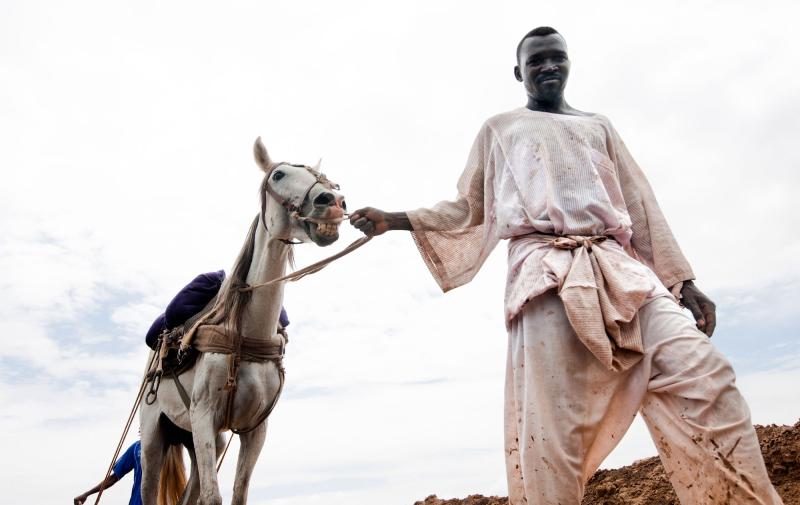Journal article
Climate change and psychosocial resilience in drylands: the need for more evidence
This article argues that public policy and programmes designed to reduce poverty and strengthen resilience in drylands must be aware of their potential to undermine psychosocial climate resilience.
Publisher International Review of Psychiatry

Internally displaced persons (IDP) settled in Dali camp, next to Tawilla (North Darfur), farm the lands rented by local owners for the rainy season, Tawilla, Sudan
Credit Image by Albert Gonzalez Farran / UNAMID - CC BY-NC-ND 2.0
There is increasing recognition of the mental health and psychosocial impacts of climate change. Relatively less attention is paid to the psychosocial dimensions of climate resilience, how interplays between psychological and social factors shape the behaviour of people and groups faced with climate shocks and stresses. In drylands of the Global South, farming and pastoralist communities in drylands are exposed to multiple sources of psychosocial stress, including climate change, conflict, political marginalisation, and rapid social and economic transformation.
In this commentary, we argue that public policy, projects, and programmes intended to reduce poverty and strengthen climate resilience in these contexts should be aware of their potential to undermine psychosocial climate resilience. However, at present, the evidence base is not sufficient to inform policy or project and programme design; there is an urgent need for more high-quality transdisciplinary research on these topics.
Citation: Sisodia, R., & Jobbins, G. (2022). Climate change and psychosocial resilience in drylands: the need for more evidence. International Review of Psychiatry, 34(5), 520–524. https://doi.org/10.1080/09540261.2022.2118520